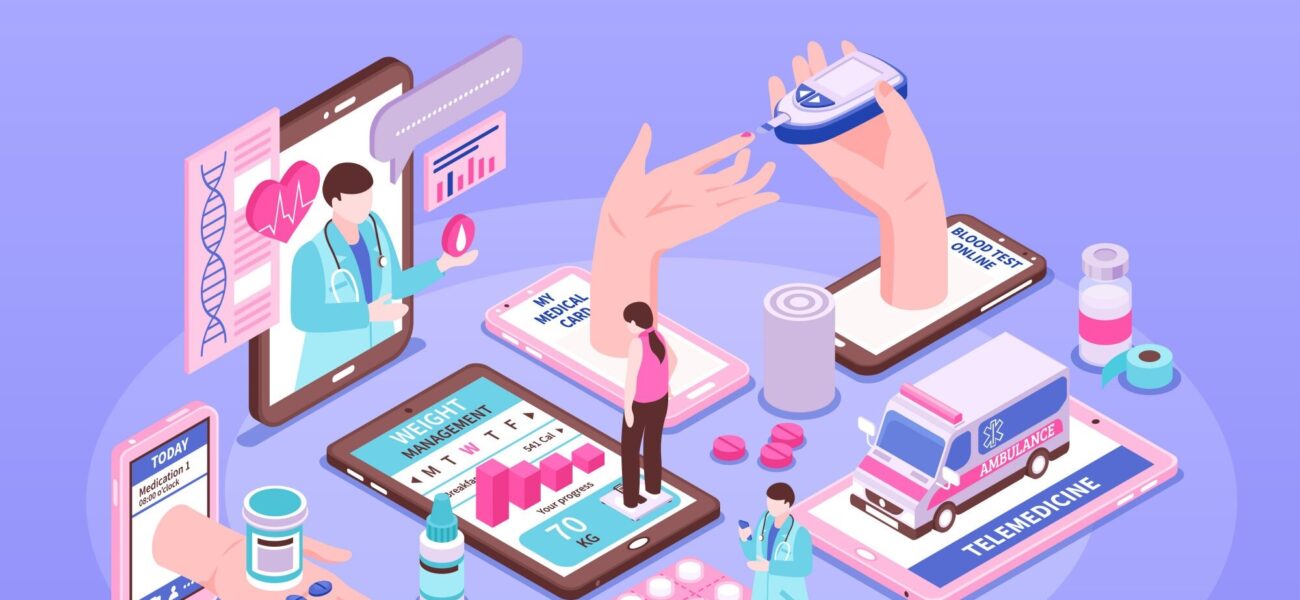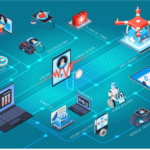Diabetes is a chronic condition that affects millions of people worldwide. Managing diabetes requires continuous monitoring of blood sugar levels, adherence to a balanced diet, and maintaining an active lifestyle. However, traditional healthcare systems often present challenges in accessibility and timely support, particularly for patients living in remote areas or those with mobility issues. This is where telemedicine steps in, revolutionizing the management of diabetes through innovative solutions.
The Importance of Monitoring Blood Sugar Levels
One of the most critical aspects of managing diabetes is regular monitoring of blood glucose levels. Elevated blood sugar can lead to severe health complications, including heart disease, kidney failure, and neuropathy. With telemedicine applications, patients can easily record their daily blood sugar readings using mobile apps or devices. These applications not only allow for efficient tracking of levels but also enable patients to share their data with healthcare providers in real time.
This immediate sharing of information facilitates timely adjustments to treatment plans. For instance, if a patient reports consistently high blood sugar levels, the doctor can promptly assess the situation and recommend adjustments to medication or dietary changes. This swift communication is vital, especially for individuals with type 1 diabetes, who must closely monitor their glucose levels to prevent acute complications.
Personalized Diabetes Management Strategies through Telemedicine
Telemedicine offers a personalized approach to diabetes management. Each patient’s condition is unique, and their management plans must reflect that. Through telemedicine platforms, healthcare providers can develop individualized strategies tailored to each patient’s needs. For example, if a patient experiences frequent fluctuations in their blood sugar levels, the physician can analyze the data, identify patterns, and adjust medication doses accordingly.
Furthermore, telemedicine enables healthcare professionals to offer dietary recommendations based on a patient’s lifestyle and preferences. Patients can receive guidance on meal planning, portion control, and healthy eating habits without needing to visit a clinic. This accessibility empowers patients to take charge of their health and make informed decisions about their lifestyle choices.
Education and Support for Diabetes Management
Education is crucial in managing diabetes effectively. Telemedicine provides an avenue for continuous education, allowing patients to learn more about their condition and how to manage it effectively. Patients can access resources, attend webinars, or participate in virtual workshops that focus on diabetes management, nutrition, and physical activity.
In addition to structured educational content, patients can engage in one-on-one consultations with healthcare providers. These sessions can address specific concerns, clarify doubts, and provide personalized advice. For instance, patients can learn about the importance of carbohydrate counting, the impact of stress on blood sugar levels, and the role of physical activity in managing diabetes.
Psychological Support through Telemedicine
Living with diabetes can take a toll on mental health. The constant need for self-monitoring, dietary restrictions, and medication management can lead to feelings of anxiety and depression. Recognizing this, telemedicine also offers psychological support for patients. Through online therapy sessions, patients can discuss their emotional challenges with mental health professionals.
These sessions can help patients develop coping strategies to manage stress and anxiety related to their condition. Additionally, support groups facilitated through telemedicine platforms provide a community for patients to share their experiences, challenges, and successes. This sense of belonging can be instrumental in promoting emotional well-being.
Access to Specialists Made Easy
Telemedicine expands access to healthcare specialists who may not be readily available in a patient’s local area. For individuals with diabetes, accessing dietitians, endocrinologists, or diabetes educators can significantly enhance their management plan. Telemedicine allows patients to schedule virtual consultations with these specialists from the comfort of their homes.
For patients living in rural areas or those with mobility limitations, this ease of access is transformative. They can receive expert guidance on various aspects of diabetes management without the logistical challenges of traveling long distances to appointments. This capability fosters a comprehensive and collaborative approach to healthcare.
Challenges and Limitations of Telemedicine in Diabetes Management
While telemedicine presents numerous advantages, it is essential to acknowledge the challenges and limitations associated with its implementation. One significant barrier is the varying levels of technological literacy among patients. Some individuals may struggle to navigate digital platforms, which could hinder their ability to access telemedicine services effectively.
To address this issue, healthcare providers must invest in training programs that educate patients on using digital tools. This training should encompass everything from how to download applications to understanding how to input and share health data.
Another critical concern is the protection of personal health information. Patients must feel secure when sharing sensitive data through telemedicine platforms. It is imperative for healthcare organizations to implement robust cybersecurity measures to ensure patient data is kept confidential and protected.
Additionally, the effectiveness of telemedicine relies heavily on the quality of the healthcare services provided. Physicians must be adequately trained in delivering care through digital platforms and must ensure they maintain high standards of medical practice in this new format.
Future Perspectives: Innovations in Telemedicine for Diabetes Management
The future of diabetes management through telemedicine looks promising, especially with the integration of innovative technologies such as artificial intelligence (AI) and wearable devices. AI can analyze vast amounts of patient data, identifying patterns and providing predictive insights that can lead to more effective management strategies.
Wearable devices, such as continuous glucose monitors, can provide real-time data on blood sugar levels. When integrated with telemedicine platforms, this data can be shared instantly with healthcare providers, allowing for immediate feedback and adjustments to treatment plans.
These advancements have the potential to enhance patient engagement and improve overall health outcomes. As technology continues to evolve, patients will likely have access to more tools that empower them to manage their diabetes more effectively.
The Transformative Role of Carepoi
In conclusion, telemedicine can profoundly impact diabetes management by providing patients with tools for self-monitoring, education, and support. Carepoi exemplifies how telemedicine can facilitate personalized care, enhance patient education, and provide critical psychological support.
Through Carepoi’s innovative system, patients can effortlessly monitor their glucose levels, share essential data with healthcare providers, and receive tailored recommendations for their treatment. This active participation in their healthcare journey allows patients to experience significant improvements in their quality of life.
The collaboration between patients and healthcare professionals through telemedicine fosters better health outcomes and paves the way for a healthier future for all individuals living with diabetes.



